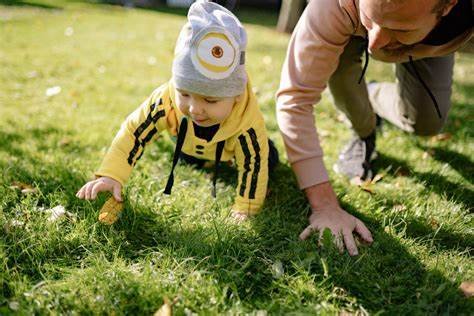Start with a Flexible Schedule
When introducing a routine, flexibility is key. Babies are unique, and their needs vary daily. Begin by observing your baby’s natural patterns for feeding, sleep, and activity. Use these cues to create a schedule that aligns with their needs while allowing adjustments as they grow.
Focus on Sleep Patterns
Sleep is crucial for a baby’s development. Establish a consistent bedtime routine to signal it’s time for rest. Activities like a warm bath, a soothing lullaby, or gentle rocking help create a calming atmosphere. Moreover, putting your baby down while drowsy but awake encourages self-soothing skills, promoting better sleep habits.

Regular Feeding Times
Feeding plays a significant role in a baby’s routine. Offer breast milk, formula, or solids at consistent intervals throughout the day. Feeding on demand works well for newborns, but older babies benefit from structured meals. Additionally, include snack times to support their energy needs as they grow.
Incorporate Play and Learning
Dedicated playtime helps stimulate your baby’s senses and supports cognitive and physical development. Schedule interactive activities during their alert and happy periods. These can include tummy time, story reading, or sensory play. Furthermore, using this time to engage with your baby strengthens your bond and enhances their growth.
Create Predictable Transitions
Babies thrive on predictability. Use cues to transition between activities. For example, dimming lights before bedtime or singing a specific song before meals signals what’s coming next. These small habits provide comfort and security, helping your baby feel more at ease.
Adjust the Routine as Needed
As your baby grows, their needs change. Be prepared to adjust the routine to accommodate developmental milestones like crawling or teething. In addition, remain patient during disruptions caused by growth spurts or illness. Consistency helps reestablish the routine once the challenging period passes.
Benefits of a Routine
A well-established routine brings stability to your baby’s day. It helps regulate their body clock, ensuring better sleep and feeding habits. Moreover, a structured routine creates predictability, reducing stress for both parents and baby. Therefore, it lays the groundwork for a harmonious family environment.
Conclusion
Establishing a baby routine is a rewarding process that evolves with time and patience. By focusing on sleep, feeding, and play while maintaining flexibility, you create a balanced and nurturing environment. With consistency and love, your baby will thrive, benefiting from the structure and care you provide.










